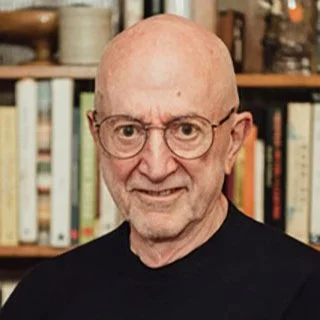About the Authors
Robert Arnold Johnson, MD began his career as a cardiologist at the Massachusetts General Hospital and on the faculty of Harvard Medical School, where he became internationally recognized as an authority on the topic of heart failure. For reasons to do with family, he returned to the Pacific Northwest, taking up nonacademic medical practice in his early forties. At age 62, pressured by an ever more insistent intuition, he left cardiology to begin a residency in psychiatry (Thomas Jefferson University Hospital, Philadelphia—a residency providing an exceptionally emphatic psychotherapy focus). Residency completed, he returned once more to his home in the Northwest, establishing an office-based practice of psychotherapy and general psychiatry. There, in collaboration with philosopher Thomas Alderson Davis, he began to explore how an understanding of the psychiatric condition “catatonia” may serve as a conceptual anchor for the notion of selfhood; their book Story by Story: Who I Am, What I Suffer was a consequence. He had learned from Davis a means for defining enigma, which was the prompt whereby he discovered that a passion for literature and the arts, which had commenced in his childhood, and his thinking about mourning had, in his old age, come together.
Susan Eileen Pickett, PhD completed a doctorate early in her career as a musician and began teaching undergraduates music theory and history, as well as coaching the most ambitious string players among them. Yet her self-image for decades, having studied violin performance under John Browning (Sr.), James Buswell, Franco Gulli, and (viola) Virginia Majewski, drew principally on her own musicianship as a soloist and as a chamber player. In her fifties, though, a slowly advancing, pain-laden cervical complication from years of playing prompted a transformation: she launched a new career, one of research into compositions by women forgotten in musical history. She is now among the leading experts in the world on women composers, through her book on the Bauer sisters, Marion and Emilie Frances, through the three CDs she has created that feature her own performances of women’s music, through her reconstruction from manuscript of Elfrida Andrée’s Concert-Ouverture (since performed dozens of times throughout the world), through a feature article about her in the Chronicle of Higher Education, through interviews with her on NPR and on Voice of America, through her personal appearance in a segment about her work on ABC’s Good Morning America, and through citations of her research in dissertations, research publications, CD booklets, and encyclopedias. She has, in addition, published three books for instruction in music theory.
Mark G. Brown, EdD has been a professional musician since his twenties, composing songs and organizing and performing (piano, trumpet, voice) in small bands featured in cities and communities across the nation. Favorite venues have included the Oxford Hotel in Denver, the Sheraton Grand in Los Angeles, and the Main Stage (Bumbershoot Festival) in Seattle. His personal favorites among his song compositions are “Desejandro,” “I Will Be There for You,” “Same Old Me, Same Old You,” and “I’m Coming Home Again.” These and others are recorded in five CDs. Songs of his composition have found a place in two musicals. Brown continues to perform, compose, and record to this very day. In his later thirties, however, prompted by family additions and the still haunting question put to him in his early adulthood by his mother—“What will you do for others?”—he began to pursue the career of a psychotherapist, first earning a master’s degree in psychology (Antioch-Seattle), then the EdD degree (Seattle University). He now has practiced psychotherapy for some thirty years.
Contributors
Paul Rotterdam, PhD is an artist, philosopher, and educator (PhD, University of Vienna, 1966; Lecturer, Harvard University 1966–1987). Dr. Rotterdam is the author of the book’s Preface.
Samuel Jones, PhD is a composer, conductor, and educator (PhD, University of Rochester 1960; founding dean Shepherd School of Music, Rice University; resident composer Seattle Symphony 1997–2011). Dr. Jones is the author of the book’s Foreword.


